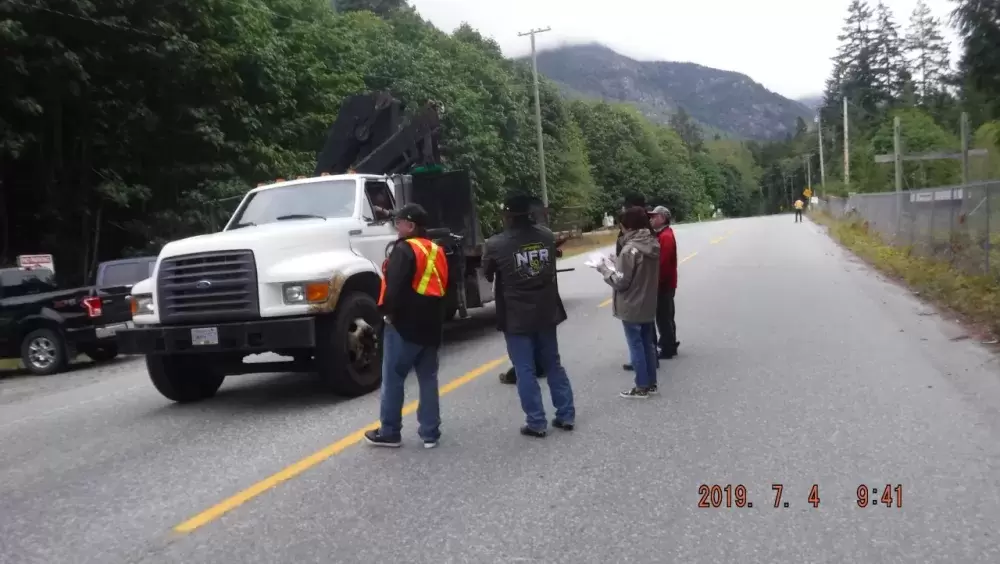The Mowachaht/Muchalaht plan to restrict access on the highway south of Gold River, after negotiations with Western Forest Products for use of the road crossing through the First Nation’s reserve land have stalled.
The announcement came Tuesday, Oct. 28 in a statement from the Mowachaht/Muchalaht, who watched Highway 28 extend through its Ahaminaquus Indian Reserve No. 12 more than 50 years ago without the First Nation’s consent. The council of chiefs are “tired of watching their natural resources trucked illegally across their reserve,” reads a press release issued by the First Nation, who are based in Tsaxana near Gold River.
The access restriction, which is expected to begin in the coming days, only applies to Western Forest Products.
“At this time, the public and small business owners and their clients will have access to the road,” said Mowachaht/Muchalaht Lands Manager Dorothy Hunt in an email. “The restricted access is for WFP and their logging trucks.”
Highway 28 runs south of Gold River, and is the route for forestry operators to transport to a log sorting facility on Muchalaht Inlet, where barges loaded with the region’s timber are headed overseas.
“Like other businesses in the area, Western has relied upon the classification of the road as a provincial highway to invest in the region,” said the forestry company in a statement sent to Ha-Shilth-Sa. “Highway 28 is a critical artery in the Gold River community, not just for Western, its employees and contractors, but also for community members, many of whom use the road daily to travel to and from work in various industries operating in the area.”
The First Nation calls the continued use of Highway 28 a trespass, citing a section of Canada’s Indian Act which says, “reserves are held by Her Majesty for the use and benefit of the respective band for which they were set apart.”
“Imagine that you had a multi-national company trespass with impunity across your lands, without ever having a license to do so, in furtherance of its own enrichment, and with no benefit to you,” said Tyee Ha’wilth Mike Maquinna in a statement from the First Nation. “This is the reality MMFN lives every day.”
Hunt said that the nation worked to negotiate a road-use agreement with Western that would bring compensation from 2005 onwards. The forestry company came back with an offer to pay for the last two years, and the next 10.
“We are committed to continuing to work in good faith to achieve a fair resolution for everyone,” stated Western, noting that it seeks clarity on the provincial government’s position.
B.C.’s Ministry of Transportation and Infrastructure is encouraging discussions between the two parties to find a resolution.
“The Ministry of Transportation and Infrastructure has been engaging in discussions with the MMFN around IR12 and will continue to move forward with these conversations,” stated the ministry.
This latest road restriction follows a similar measure taken by the First Nation in July 2019, during the first few weeks of a strike affecting Western Forest Products’ employees and contractors that stretched into early 2020.
The conflict dates back to the 1970s, when a protest by the First Nation at the same site resulted in nine arrests.
“As one of the Hereditary Chiefs of our nation I have always wanted our people to be successful, have good lives and provide for their families,” said Maquinna. “The Chief’s responsibility includes managing the resources within our Traditional Territory and to ensure our jurisdiction over our reserve lands is respected.”







